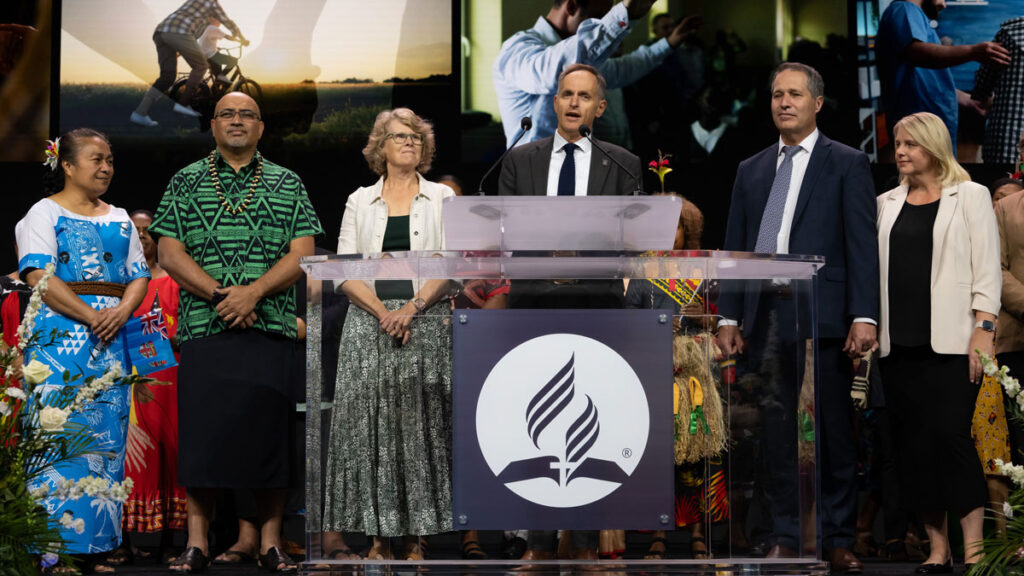Much of the 2020 church year was well planned for the church I pastor by the time I left for holidays in December 2019. Yet by the time I boarded the plane to return home in mid-January, these plans were changing.
Extreme drought and record temperatures saw Australia experience unprecedented bush fires, burning huge amounts of land and dashing the hopes and dreams of many.
That first Sabbath back, I changed my series topic and talked instead about finding and extending hope to others during this unprecedented time.
Two months later, “unprecedented” is a word we’re hearing time and time again.
Bushfires affected a few countries, Australia in particular, but what we face now affects the world. The COVID-19 pandemic is a health crisis like we’ve never seen in our lifetime—and will, hopefully, never seen again. It has affected not only our health, but so many other areas of our lives:
- Governments are scrambling to enact legislation to ensure social distancing, and billions of dollars in stimulus and survival packages are being handed out.
- Thousands are losing their jobs, with millions more worried about what this means for their employment, and how they’ll provide for their families.
- Restaurants, clubs, cinemas, pubs and places of worship are forced to close.
- Travel worldwide has simply dried up; our national and, in Australia, state borders are closed. Let that sink in . . . Unprecedented!
This has brought anxiety and fear. Supermarket shelves are being stripped bare of essentials and staples. In addressing panic buying, the Australian prime minister has been strident with his condemnation. So much so that his daughter told him that he was talking to the Australian people like he talked to her when she was in trouble!
Of course, there’s the lighter side. Someone on Facebook complained: “I would have joined in the panic buying, but when I looked at my bank account, I could only do the first part—panic!”
We also have to do church in a very different way. Our church buildings are closed until further notice. Pastors find themselves preaching to cameras instead of congregations. Unprecedented.
The Apostle Paul’s attitude
In thinking about our unprecedented times, my mind has been drawn to Philippians 2. Paul’s overall attitude in Philippians is one of joy and it’s infectious. Spend enough time in Philippians and you’ll catch it—his joy rubs off on you. He has met Jesus Christ and it has made a dramatic difference in his life.
The first word in chapter 2 (in the NIV)1 is “therefore”. This is a reminder to discover the context of what led Paul to write these words. However, his circumstances are far from ideal when you read what comes before the “therefore” in chapter 1:
- He’s in chains in prison
- His work is under attack from competitors
- He’s getting old and weary
- The church is being persecuted
Despite this, he’s not worried about his current situation and is clearly not afraid of what is happening to him: “For me to live is Christ, and to die is gain” (1:21). He encourages his readers: “Rejoice in the Lord always and I will say it again, rejoice” (4:4). He has a peace that passes all human understanding (4:7).
In the immediate context just before chapter 2, Paul says, “Whatever happens, conduct yourselves in a manner worthy of the gospel of Christ” (1:27).
Whatever happens! Even if it’s unprecedented. No, especially if it’s unprecedented. Whatever happens, conduct yourselves in a manner worthy of the gospel of Christ.
In Philippians 2, Paul expands on this using words like “unity”, “love”, “tenderness” and “compassion”, which leads into this thought: “Do nothing out of selfish ambition or vain conceit. Rather, in humility value others above yourself, not looking out for your own interests but each of you the interests of others” (2:3, 4).
Early Christians took Paul seriously
Paul took this seriously, and so did Christians after him. What we have now is unprecedented in our lifetime, but there have been other pandemics throughout history. We know how Jesus followers acted in these times. Lyman Stone reminds us that:
- Historians suggests that the Antonine Plague of the 2nd century—which might have killed a quarter of those in the Roman Empire—helped the spread of Christianity because Christians cared for the sick.
- The same can be said for the epidemic known as the Plague of Cyprian in the 3rd Century. The name came from Bishop Cyprian who told Christians “not to grieve for [Christian] plague victims (because he believed them to be in heaven), but to redouble efforts caring for the living.”
- His fellow bishop, Dionysius, described how Christians, “heedless of danger . . . took charge of the sick, attending to their every need.”
- A century later, the pagan Emperor Julian complained bitterly of how “the Galileans” (followers of Jesus) would care even for non-Christian sick people.
- Sociologist and religious demographer Rodney Stark claims that death rates in cities with Christian communities may have been just half that of other cities.2
We still have a role
The followers of Christ were willing to do whatever it took to care for others, to the point of giving up their lives. Christians created the first hospitals in Europe as hygienic places to provide care during the time of plagues. Caring for others means doing whatever it takes to stop the spread of the disease further. [pullquote]
In our world there are now hospitals and medical staff and isolation wards, but it’s important that our actions don’t contribute to the spread of the virus. That’s why our churches were closed before it was mandated, and we emphasise hygiene and social distancing. But it’s also vitally important that we look out for others, love others and put them first. That’s following Paul’s counsel—to conduct ourselves in a manner worthy of the gospel.
Where does the motivation for this come from? In Philippians, Paul calls us to have the same “mindset as Christ Jesus: who, being in very nature God, did not consider equality with God something to be used to his own advantage.” He took on the servant role, “being made in human likeness . . . he humbled himself by becoming obedient to death—even death on a cross!” (2:5-8).
Unprecedented!
With no thought for Himself, knowing that the sin virus was out of control on earth, and knowing the cost, Jesus Christ, the Son of God, left the throne of heaven, entered this sin-ridden world as a human, humbled himself as a servant and went to the cross for us.
Jesus embraced sacrifice, not selfishness. As Christians we move toward, not away from, neighbours in need—like Jesus did for us.
It’s about looking out for each other. Like the two shoppers coming across the last packet of toilet paper together. When one of them suggested they buy the pack together and share it, the other burst into tears and broke the social distancing rules by hugging the other. Or the supermarket owner who decided to give a roll of toilet paper to any who needed it.
This is a time for us to embrace sacrifice, not self-interest. Just as Jesus showed unprecedented love, we’re called to show unprecedent love for each other and for those in our communities in these unprecedent times.
Travis Manners is senior pastor of Morphett Vale Seventh-day Adventist Church, South Australia.






